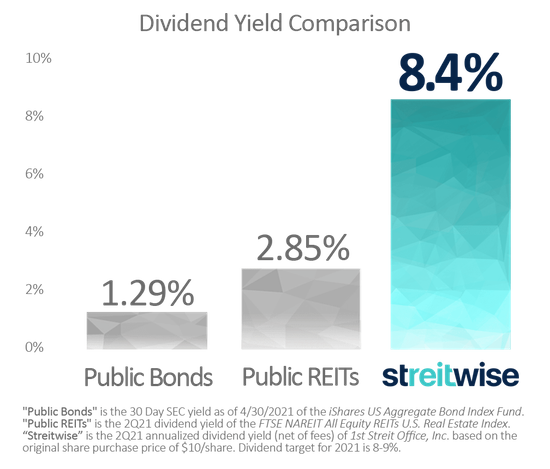
If you’ve recently become a landlord or are considering purchasing a second home for renting purposes, you’ve likely been introduced to a large bevy of responsibilities and duties you never expected you’d have. You can also find many mistakes landlords make.
While renting out your property can be an extremely lucrative business venture, many enter the realm of rentals without proper knowledge or education on the subject and find it’s not as easy as expected. We’ve laid out the top mistakes landlords make when they run into, and the things you can do to avoid them.
Top 7 Mistakes Landlords Make
1. Lease Issues
Leases are the single most important thing to have completed before allowing someone to live in your rental, as any legal issues will require documentation to prove your case. Cater your lease to your personal needs and protect your assets.
Common provisions to consider include your pet policy, security deposits, length of tenancy, utility costs, and pest control issues. Consider consulting with a real estate attorney to ensure all of your key points are covered, at least for your first rental experience.
2. Not Being Thorough with Screening
You might be in a rush to fill a vacant home, but do your research before you let someone live in your property. Use something like a tenant background search at MySmartMove.com to make sure the people allowed into your rental are a good match.
Checks like this can give you a wide array of information, including bad credit, previous criminal convictions, and any prior evictions. Don’t let impatience win out; giving due diligence to your screening process will lower your likelihood of legal issues and expensive damages later on.
3. Emergency Funds
Don’t make the mistakes landlords make of thinking your apartment or house will always be filled. Vacancies won’t excuse you from a mortgage, so make sure you have the money set aside should you be lacking on a source of rent for a month or two.
It’s also essential that you have the money available to handle any emergency issues that come up, along with regular maintenance needs—even if rent money isn’t coming in.
4. Treating the Role as a Hobby
Landlords who treat their role as a hobby are in for a world of hurt. Treating your rental as a business is the only way to turn a profit, and understanding the responsibility you take on with this venture is essential to success.
Use separate bank accounts, one for business, and another for personal needs. Maintain contact with your tenants, and don’t neglect them—doing so could open you up to a variety of legal suits.
Landlords who choose to forgo property management help are responsible for timely response to tenant complaints and housing issues, and it is your charge to ensure tenants have a safe and habitable home to reside in.
5. Not Hiring a Property Manager
If the aforementioned responsibility sounds like too much, property management is the way to go. Property managers handle a host of duties: face to face interactions with tenants, advertising, property maintenance, and even evictions. Property managers will cost you, but the headaches saved and lowered responsibility might well be worth it.
6. Shirking the Research
Landlords who don’t do their homework will face the consequences. Renting out a property comes with its fair share of legal issues and liabilities, and it’s essential that you become well-versed on local, state, and federal regulations before even considering renting out your space.
You must ensure you are following Fair Housing laws, understand the rules regarding house visits, and know the nitty-gritty regarding security deposits. The regulations vary by state and locality, and consulting with a professional before beginning to rent out your property is the best way to ensure you are following all legal requirements.
7. Being Lax on Rules
If you don’t strictly abide by your lease, your tenants won’t either. If you find a cat in the apartment and your lease has a no-pet policy, don’t let it go.
If the rent is late, impose your lease-written fine. Letting things go once means letting them go every time, so nip any bad tenant behavior in the bud the moment it occurs.
What about you? Have you made some of these mistakes landlords make? I know that I sure have.
Investing in Real Estate REITs with Streitwise
Streitwise is an excellent opportunity for investors to create passive income streams with commercial real estate investments. Their dividends are disbursed to shareholders on a quarterly basis (typically averaging 8-9% on an annual basis).
Streitwise also offers a dividend reinvestment program to significantly accumulate more wealth for investors who opt-in. DRIPs are beneficial for investors who prefer to maximize their long-term returns instead of using dividends as a source of passive income, so it’s up to you to decide what you want to do with your Streitwise dividends.
Anyone who has as little as $5,000 available to invest and a desire to diversify their portfolio beyond stocks and bonds should consider investing in commercial real estate with Streitwise.

Investing in Real Estate with Roofstock
But, you don’t have to buy homes and rental properties to make a great ROI, there are several different crowdsourced real estate investment options that have a small minimum initial investment such as Roofstock, PeerStreet, and Fundrise. For just a few hundred dollars in many cases, you can now invest in real estate.
Roofstock is the #1 marketplace for buying and selling single-family rental homes. Roofstock has listings in over 40 markets across the US. And, 1 in 10 homes in the U.S. is single-family rentals (SFR), which equates to over 15 million households.
Single-family rentals are a stable asset class with considerably less volatility than stocks. Single-family rentals prices have remained almost perfectly uncorrelated with stock prices since 1971, with a correlation coefficient of only 0.07.
Their online marketplace empowers everyday investors to own cash-flowing income properties and build wealth through real estate. Roofstock makes it easy to invest remotely.
Over 60% of their customers are buying a rental property located more than 1,000 miles away. With their market analysis, Roofstock provides research and data analysis to help you determine which locations meet your investing objectives.
Roofstock’s marketplace offers rental homes for sale in 40 markets and 21 states nationwide, and they are continuing to expand. Roofstock surpassed $1 billion of collective transaction volume within two years of its marketplace launch, making it one of the fastest-growing FinTech startups of all time.


Can’t underscore the screening process the most. Do a credit check. Do a reference check (including a residence history and contacting previous landlords). Evicting a tenant ranges from a headache to a massive one, depending on your state laws, so take the time up front to screen, screen, screen.
How much income on the rent payments does a property manager charge? Do they usually take a flat rate of income? Or do they generally require a minimum flat rate per month?
What matters is what Prop Mgrs charge in the area where your rental is. Make a list of questions first. How? Imagine what will happen as the months go buy, & your tenants live in it. Then, Call EVERY prop Mgr, and ask each one the same questions – right down the answers so you can compare them later – of course, one set of questions will be about what they will charge you for each activity they conduct in your behalf – advising you as to what rent to require, advertising, interviewing, providing/filling out the Rental Agreement, collecting the rent, responding to complaints and/or needed repairs, accounting for the rent monies & various costs, evictions, court appearances, supervising tenants leaving, preparing the unit for the next tenant. (and, repeat).
You should also contact the local Rental Owner’s/Landlord’s Association, & ask for advice and recommendations.
This is just a beginning.